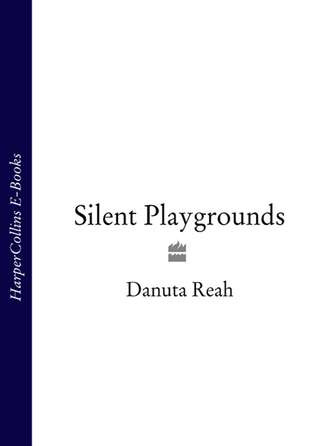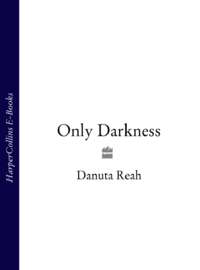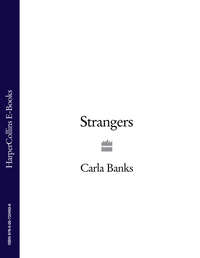
Полная версия
Silent Playgrounds
Now he could sit and wait. Two hours. Tonight he’d brought his drawing pad with him. He opened it to a new page. The sheer whiteness, the blankness of it pleased him, and he sat looking at it for a long time. Footsteps on the shiny floor. A face, smiling. Just a face. Faces need to be drawn, carefully delineated in sharp pencil lines to give them meaning. ‘Hello, Simon. I haven’t seen you at …’ Malcolm. Tutor. Tune it out. Not important. The beauty of the white began to evade him, and he picked up his pencil. ‘… so close to your finals.’ Nod. That’s not enough. Say, ‘Yes.’ It was important to get it right in the centre. The pencil began to create a picture, fine lines, fine detail, unclear at first to anyone who can’t see the patterns that have always been so clear to Simon.
‘… catching up. This lab’s empty tonight, but Barry’s next door if you need anything. They’ll be locking up at nine.’ Their eyes meeting. Simon, looking away, nodding. Say, ‘OK. All right.’ Footsteps. Door. Gone. Simon looked at the clock, and returned to his drawing.
Two hours. He added the contents of the third flask now, cool not cold. The solution turned a clear white, like milk, like paper.
Hours to wait now. Leave, down the shiny corridors and the lights in the ceiling, and the chaos as the people walk here, there, and all the patterns disturbed. Say, ‘Goodnight.’ The security man, old, ‘Night.’ Looking down, not noticing, used to Simon’s comings and goings. Out of sight and back to the room with the shiny floor. Wait.
Lights out. The security man, back soon. Wait, watch, sleep. Sleep. Dream …
The torchlight wavering on the path ahead. Fading, as though the batteries were giving up. The rain spattering against them, and a puddle gleaming in the thin light. And on the path ahead … Staggering under the weight as she slumped against him. The stuff had been good, strong. Quiet, be very quiet. The path by the dam, now. The night, black beyond the circle of faint light on the ground. The torchlight catching the rain, shining and glittering. Shining and glittering like the mud in the dam, the thick, black mud and the sucking sounds drawing your feet in and releasing them. And the place where the mud was disturbed, the place where you could dig.
Oh, no. Please not that. And the gleam colder than the gleam of firelight, making the metal burn with ice.
Not that! And the soft, muffling sound of the mud in the darkness.
Simon’s eyes snapped open. That dream again, and now there was another one, rushing along a shadowed path, looking for something that wasn’t there, feeling it hard on his heels, the chaos, the chaos, the chaos.
He looked at the clock, its black hands on its white face calming him, steadying his breathing. Just a dream, Si. Don’t worry about it. Several hours had passed. It was midnight. The night watchman never came up here so late. Simon began heating the water bath.
5
Dennis Allan’s home – once Emma’s home – was a maisonette on the estate overlooking Gleadless Valley. Tina Barraclough got lost on her first attempt to find the address, working her way through the confusing maze of two- and three-storey blocks that studded the valley side. From the distance, the estate gave a sense of openness, of green parkland dotted here and there with buildings whose fronts were multicoloured with fluttering curtains, washing hanging on the balconies, painted doors. From closer up, the decay was more apparent. There was rubbish on the grass, bare, muddy patches. The paintwork on the buildings was peeling. Nearby, the blocks were boarded up. Further down the hill, they were encased in scaffolding, surrounded by the mud and rubble of a building site, tarpaulins and polythene sheeting flapping in the summer breeze.
The Allans’ block was one that was awaiting refurbishment. Police cars were parked in front of the row of garages that formed a basement to the building. Barraclough pulled up beside them. The doors of the garages were uneven and chipped, decorated with tags and slogans and names: CASSIE B AND CLAIRE D WOZ ERE! BAZ FOR CLAIRE D! SLAGS LIVE HERE. The garages had once been painted in primary colours, red and blue and yellow. Traces of the paint could still be seen.
Barraclough went up the concrete stairway to the first deck, to number twelve, the Allans’ maisonette. Though the rubbish chute seemed to be jammed, stuck open and overflowing, the stairway itself was swept clean, the front doors painted and most of the windows trim with nets and potted plants. One or two doors were open as people watched the police team arrive, but the doors closed again as quickly when neighbours were approached. Barraclough opened the door to number twelve and went in.
Having got permission to search the house, Brooke had given instructions for the place to be turned over. ‘I want anything – anything at all that tells you what’s been going on there. Anything that says Emma went back after he says she left, anything that tells us about her. I want the lot.’
The maisonettes were laid out to a pattern. Barraclough had a friend who lived in a council maisonette on another estate, and she could have found her way round this one with her eyes closed. A kitchen to the left of the front door, a corridor leading into an L-shaped living-room with French windows opening onto a small balcony. Upstairs, a windowless bathroom, a separate toilet, also windowless and smelling faintly of urine. A bedroom and a tiny second bedroom – Emma’s. According to her father, the room hadn’t been touched since she left. ‘I wanted her to think she could come back. I wanted her back,’ he said.
Emma had been seventeen. Barraclough was twenty-four. She wondered if those seven years would be a big enough gap to make a barrier. She could remember being seventeen. She couldn’t remember seventeen feeling any different from the way twenty-four felt, except that life seemed both easier and more difficult at twenty-four. Barraclough cast her mind back. Seventeen had been rows with her mother about her exams. Had it been arguments about late nights and boys, or was that from when she was younger? Barraclough felt as though she’d been making her own decisions for a long time, but maybe her mind was deceiving her. Seventeen. Emma had lived here with her mother who apparently thought nothing about inflicting her own miseries on her family. Her father – was he the ineffectual ditherer he seemed, or did that pathetic exterior hide a more sinister, more manipulative psyche? Emma must have been unhappy. She’d run away twice. Why had she come back – and why had she finally left?
Barraclough looked round the small room, trying to get a feel for Emma, get a picture of the living girl, rather than the dead woman on the slab in the mortuary. There was a single bed under the window, and a melamine wardrobe against the wall, the kind that had hanging space and shelves and drawers. It was clean and tidy, and the bed was made up. The room was the room of a younger girl, the room of someone who was growing up, moving on. Emma had not bothered to change or update it. The bedding and curtains were brightly coloured with a cartoon motif – Bart Simpson. Eat my shorts. Emma’s choice? Her mother’s? Either way, the bedding and curtains were faded. They weren’t new. A torn Spice Girls poster was above the bed, something that Emma would probably be embarrassed to own if she had retained much awareness of the room. A photograph of Royal Trux, one that looked as though it had been cut from a magazine, was pinned to the opposite wall.
Barraclough opened the wardrobe door. A stained fleece dressing gown hung on a hook – it looked too small for Emma to have worn it recently – and a party dress, black, Lycra, very short, halter-neck top. A real jaw-dropper. A RECLAIM THE STREETS flyer was stuck to the inside of the wardrobe door. A pair of old trainers lay on the bottom.
She pulled open the drawers. There was nothing there apart from a half-empty packet of Rizlas, the card of the packet torn, and the remains of a cigarette. Barraclough picked up some of the tobacco and sniffed it. The undersides and backs of the drawers yielded nothing. She looked round the room again. There was a rucksack on the back of the door. She opened it and looked inside. It was empty apart from a couple of flyers – free parties by the look of things, Smokescreen and DIY Sound System. Underground, deep house. She checked the side pockets of the bag – for a moment, she thought she’d found a diary and her heart jumped, but it was a wallet, the kind you get from banks and building societies for holding cards. She flicked through it. It contained a cash card, a bus pass and a chain store credit card. Odd, for an unemployed teenager. Had Emma been in debt? She flicked through the cards to see if there was anything else in the wallet, and a couple of photographs dropped out. She picked them up. The first one showed a young woman at a party or a disco – the background was dark, with people indistinct in the background. The light – possibly a flash – had caught the woman, and she was laughing and holding her hand up in protest. For a moment, Barraclough thought it must be Emma, but the hair was darker. On the front of the photograph someone – the woman in the picture? – had written TO EM. She turned the photograph over. On the back, in a different hand, it said SOPHE. HULL, ’97. Sophie Dutton?
The second photograph was a snapshot of a group of people, blurry and out of focus. It looked as though they were setting up some musical equipment. In the foreground, clearer than the other figures, was a woman, about the same age as the woman in the first picture, Sophe, but the picture was older. There was something about the style of clothes, the make-up, that said seventies, and not seventies revival, either. The clothes looked clumsy, without the stylishness of more recent fabrics and designs. Barraclough looked more closely. The woman could be a younger version of a photo she’d noticed downstairs, a very young Sandra Allan. She looked at the other people in the picture, but it was impossible to make out any detail. She turned the picture over. There was a date scribbled in faded ink. It looked like November 197—The last digit was unclear, and there was another word she couldn’t quite read:—ELVET. Above that, in what looked like more recent ink, someone had written, so WHAT ABOUT THIS? She looked at the photo again. There was something about the woman – girl, really. The way she was standing, awkward, unbalanced. Barraclough frowned. It reminded her of … Of course! The woman in the photograph, the woman who was probably Sandra Allan, was pregnant. She looked at the smudged date again. Sandra Allan had had a child before she had Emma. What had happened to it?
Dennis Allan’s face flushed as he looked at the photograph that McCarthy passed to him. ‘Do you recognize any of these people?’ McCarthy asked him.
He shook his head, then said, ‘Sandra, of course. I don’t know …’ He peered at the picture. ‘I don’t recognize any of them,’ he said. ‘It’s hard to tell.’ McCarthy nodded. The photograph was indistinct. ‘I don’t know where this came from,’ he said. He’d known Sandra towards the end of the seventies, he said. He’d been in a band, and Sandra had been the singer for a while. ‘I left in ’77,’ he said.
McCarthy asked him about Sandra’s pregnancy. Allan’s face flushed again. ‘We lost touch when the band broke up,’ he said. He caught McCarthy’s look and said with real indignation, ‘It wasn’t mine. I wasn’t her boyfriend.’ The band, Velvet, had broken up in ’78, when another member had left. ‘I met Sandra again in ’81,’ he said. ‘We got married in 1982, just before Emma was born.’ His face looked forlorn.
Barraclough liked nosy neighbours. She particularly liked house-bound nosy neighbours. Best of all, she liked house-bound nosy neighbours who were quite up-front about their hobby. It was always a frustration and a delay to find your way tactfully around ‘I mind my own business’ and ‘I keep myself to myself.’ Rita Cooke was seventy-three. She had the shuffling gait and twisted hands of arthritis, but her mind was whip sharp, as, apparently, were her eyes. And she’d lived next door to the Allan family for ten years. ‘I don’t know which was worse,’ she said happily, pouring Barraclough a cup of tea. ‘That Sandra, always got a long face on her, always sighing and moaning. She’d come round here and it was, “Oh, Dennis’s done this and Dennis’s done that and poor me.” What she needed was a few real problems, take her mind off herself.’
‘What did her husband do? What did she complain about?’ Barraclough took another biscuit.
‘Oh, something and nothing. He worked nights, you see, and she didn’t like being on her own, or he wouldn’t back her up with the girl – “He lets her talk to me how she likes” – or he didn’t understand about how ill she was. You know. Mind you’ – Rita Cooke wanted to be fair – ‘he was just as bad. In his way. “Yes, love, yes, love, oh, what shall I do? Oh, I can’t cope.” It’s no wonder that child went to the bad.’ She waited for Barraclough to pick up the bait.
‘How do you mean, Mrs Cooke?’ Barraclough asked obligingly.
‘Oh well, I only know what I saw. She was out all the time. All night, sometimes. And she had some very odd-looking friends, not that they came here much. Not unless there wasn’t anyone here.’
Barraclough nodded. ‘Would you recognize any of them?’ she said.
Mrs Cooke gave her a sharp look. ‘I might be getting on, but I’ve still got my sight,’ she said. Barraclough hastily nodded again. ‘There was one lad – didn’t like the look of him at all. He used to hang around a lot and wait for her. I’d have sent him off, but you’ve got to be careful these days.’ Barraclough got a description of the youth. Tall, pale, dark hair and eyes. ‘Quite good-looking,’ Mrs Cooke conceded.
Barraclough asked her about Sandra Allan’s death. For the first time, the old woman seemed a bit reluctant to speak. ‘I don’t know,’ she said. ‘She had a big row with the lass – shouting and screaming. I couldn’t hear what they were saying, but it went on for a while. Then the lass is off out, door slamming, and he starts. I’ve never heard him shout at her before. She went out for about half an hour …’ Barraclough checked the time. They knew about that. She’d gone to the chemist to collect a prescription, the prescription for the pills that she later overdosed on. ‘Then she didn’t go out again. I saw him going out to work, four o’clock that was. I thought she was going to come round here like usual when she was upset, but she never did. It was quiet after that. I heard him come back at six the next morning. Then I got woken up again by the ambulance.’ The old lady frowned, looking uncertain, frail. ‘I never thought she’d do it,’ she said, looking at Barraclough with troubled eyes.
Suzanne gave up on work. She felt as though something trusted and familiar had let her down. She looked out of her kitchen window and saw Jane in her small yard, working in the early evening sun on the tubs she used to grow herbs. Lucy was crouched over some game involving building blocks and the animals from her wooden farm. Mother and daughter.
She remembered her own mother, that close, intense relationship that had been the centre of Suzanne’s child universe. She could remember coming in from school every day, her mother lying on the settee, the disorder of the morning still to clear up, the food to prepare before her father came back from work.
As a child, she had just accepted her mother’s illness. As an adult, she could see that it had deprived her of the things that a normal childhood should have: a mother who looked after you, friends, uninterrupted schooling. But as a child, she had liked it. It had made her feel important and wanted. She remembered her mother the year before Adam was born, always on the settee, always in bed. But she could remember a party, her friends round a bonfire, sausages on sticks and her mother laughing as she watched them bob for apples. When had that been? You’ve worn your mother out, Suzanne! How can you be so thoughtless! Her father. She shook her head. Memories of childhood were not what she wanted just now.
She knocked on the window and, when Jane looked up, she mouthed, Tea? Jane smiled and nodded and, five minutes later, Suzanne was carrying mugs of tea out into the garden, and some apple juice for Lucy. The day was fine, the sky a deep blue, with just a few clouds racing in the breeze that kept the air warm rather than baking hot. Suzanne took off the sweatshirt she’d been wearing over her T-shirt, and sat on the low wall that divided the two gardens, watching Jane work. ‘It’s just tea,’ she said, indicating the mug.
‘That’s OK.’ Jane pulled up a long-rooted dandelion and looked at it. ‘You know, they used to cultivate these things. I tried making dandelion coffee once. It was disgusting.’
Suzanne looked across at Lucy who seemed to be involved in her game, oblivious to the conversation between the two adults. ‘Have you heard anything more?’ Jane looked at her. ‘From the police, about Emma.’ Surely Jane didn’t need reminding.
‘Yes, I know.’ Jane went on looking at Suzanne, then she said, ‘You still look very tense. I don’t know – I haven’t heard anything directly.’
‘How do you mean, directly?’
Jane knelt back on her heels and sipped the milkless tea Suzanne had given her. ‘I’m sure this stuff is better for you than people say,’ she said, indicating her mug. ‘Of course, you just don’t know what’s in it.’
Suzanne wasn’t sure if Jane was being deliberately evasive, or if she was just thinking out loud while she sorted out an answer to Suzanne’s question. She couldn’t ask again, because Lucy came over and looked at the glass of apple juice. ‘Is that mine?’ Suzanne nodded, and Lucy picked it up carefully, holding it with both hands.
‘Sorry,’ Suzanne apologized. ‘It’s a bit full.’ Lucy nodded, concentrating as she lifted the glass to her mouth. ‘What are you doing?’ Suzanne indicated Lucy’s game over at the other side of the yard.
‘Playing.’ Lucy drank some more juice and looked at the level in her glass. ‘I’m going to take some for the people,’ she said.
‘People?’ Suzanne looked across to where wooden toys were assembled on some twigs and leaves. The peacock feather was stuck in the ground like a flag above them.
‘They’re on a boat,’ Lucy explained. ‘Escaping from the monsters. Tamby’s guarding them.’ She carried her glass carefully back to where she’d been playing.
Jane pulled a face. ‘Still monsters,’ she said. ‘They spent a long time with Emma’s father,’ she went on, ‘but I don’t know why. Joel told me.’
Suzanne had to do a quick mental pivot to realize that Jane was now answering her earlier question. ‘Emma’s father? How does Joel know?’
Jane shrugged. ‘Joel made it his business to know. I don’t ask. Joel wanted to know if there was anything they weren’t telling us – that we should know. He was worried.’
‘Well, so he should be.’ Suzanne wasn’t giving any ground on Joel. ‘She is his child. His only child.’ This concern, uncharacteristic of Joel in her experience, made her feel slightly warmer towards him.
‘Oh, she isn’t. His only one, I mean.’ Jane sat back on her heels, detaching a snail from one of the plants. She looked at it. ‘I don’t want that.’ She threw it over the wall into the garden of the student house. ‘He had a child from his marriage.’
Suzanne was genuinely shocked. She hadn’t known. ‘He never said anything. I’m sure he never told Dave.’
‘No. There’s no contact.’ Jane had finished working on the tubs now, and was looking at them with calm pleasure.
‘What, never?’
Jane fixed her blue eyes on Suzanne. ‘Never.’ She gauged Suzanne’s reaction for a moment, then said, ‘I know how it looks. And I don’t have many illusions about Joel. I know what he’s like. But there’s Lucy, you see.’ She rested back on her heels, her hands clasped round her cup. ‘Joel was just a bit of fun – I knew he wasn’t someone to take seriously. I didn’t actually plan for Lucy to happen.’ Suzanne nodded. Jane rarely talked about this. She was a very self-contained and private person. ‘Lucy needs to know that her father loves her,’ Jane said, glancing back at where Lucy was still absorbed in her game. ‘And if that means I have to make allowances for him, well, what does it matter? If I pressure Joel into doing more, he’ll just vanish. And what good will that be for Lucy? She’ll find out what he’s like as she gets older, but, just now, she needs to know he loves her.’
‘Does he?’ Suzanne had never, until recently, seen much sign of this in Joel.
Jane sighed and shook her head. ‘I don’t know. As much as he’s capable, maybe. Though this thing has really given him a jolt. He was straight up as soon as I told him – he was pissed off that I didn’t call him straight away – and he’s sticking around. Oh, he’s off today because he’s working, but he’s coming back tonight.’
Suzanne felt depressed at the thought of Joel being around. She remembered her encounter with him that morning. ‘He seemed upset that the police had interviewed Lucy,’ she said doubtfully. She found Joel in his new incarnation as concerned father a bit hard to believe.
Jane nodded. ‘He said I shouldn’t have allowed it. He thought it had upset her. I think she needed to talk about it, and she needs to know that someone is doing something. It was good for her to see the police – she knows that there’s someone to chase the monsters away. And we all needed to find out what happened – to Lucy, as well as Emma. I think Joel knows that really. He just hates to admit he’s wrong.’
‘Do you know any more about what happened to Lucy?’ Suzanne looked across the garden to where Lucy was rearranging her toys, her face serious.
Jane shook her head. ‘Lucy still says she went to the playground on her own, then she hid in the woods because she didn’t want to go to the hospital, I think. But it all got mixed up with Tamby. Each time she tells it, it gets more and more like one of her stories. I agree with Joel about any more interviews. I’ve told the police I’m not asking her again. I want her to forget.’
Suzanne needed to talk. Jane listened quietly as Suzanne told her about the interview with DI McCarthy, and her worry that she’d unwittingly implicated Ashley. ‘I tried to explain,’ she said, ‘but he didn’t believe me.’
Jane looked at her with exasperation. ‘You worry too much. Leave it up to them. It’s not your problem any more. You did the right thing. You told them what you saw. They’ll deal with it.’ She thought for a moment. ‘McCarthy. Was he the fair-haired one? Cold and distant? There’s something very sexy about men like that. He should have been wearing a uniform.’
‘Who? Who should have?’ Suzanne was thrown.
‘Your DI McCarthy. And you had him to yourself for a whole hour?’ Jane sighed. ‘All Lucy and I got was some female with a stuffed rabbit.’ She looked at Suzanne. ‘It’s not your problem,’ she emphasized.
Suzanne looked at Lucy who was engaged in carefully burying one of her toys in the narrow border at the bottom of the yard, her hands and face muddy, her hair tousled, her face intent.
Dennis Allan sat at the small coffee table in the front room. It was dark; the heavy curtains were drawn. He didn’t want people looking in, staring, whispering. He’d heard what they had been saying. Him… his wife… now his daughter… the police… murder… murderer… Murderer. He held his hands round the mug of coffee, sipping it occasionally, not noticing that it was cold. How had it happened? He looked at the photographs on the glass cabinet, safe in their frames, safe like he wasn’t any more, like his family wasn’t any more. Sandy in her wedding dress, white, he’d wanted that, though his mum had had a bit to say. Well, under the circumstances, Emma already on the way … Emma, in one of those oval frames the school photos came in, ten, smiling. Emma and Sandy on holiday, squinting in the sun, smiling. Emma in cut-off jeans, her blonde hair dyed a funny yellow, that awful stud through her nose, not smiling any more. Emma last Christmas by the tree, caught unawares, playing with the cat. Smiling now.






